
|
Tom F. Anders Seminar Series, formerly known as the Providence Sleep Research Interest Group (PSRIG), was formed in 1990 and provides an opportunity for scientists and clinicians to interact on a monthly basis for the scholarly exchange of ideas and information pertaining to the area of sleep and circadian rhythms. Historically, individuals from the surrounding areas of Rhode Island, Connecticut, Massachusetts, and sometimes other parts of the country, participated in these monthly meetings. This year the series will be held virtually and we are thrilled to present a diverse lineup of speakers from various institutions both nationally and internationally, and to open this series to a wider audience. We hope to maintain an atmosphere that is informal, intimate, and sleep-sophisticated. TFASS seminars will be held via Zoom at 12pm on the 3rd Tuesday of each month during the academic year. Invited speakers represent diverse backgrounds and approaches in their study of sleep and chronobiological issues, including basic and clinical research. If you would like to be added to the TFASS mailing list, or for links to past recordings, please email Gina Mason at gina_mason@brown.edu. Dates for the 2025-2026 academic year are listed below and will be updated with more details as speakers and presentation topics are confirmed. To register for an individual date, click HERE. 
September 16, 2025 Jamie Marc Zeitzer, PhD Department of Psychiatry and Behavioral Sciences, Co-Director, Center for Sleep and Circadian Sciences, Stanford University Topic: Reclaiming Teen Sleep: Innovative Biocultural Strategies from the U.S. and Taiwan Chronic sleep deprivation among adolescents is a global crisis, with serious consequences for mental health, academic performance, and overall well-being. While biological changes during adolescence are largely universal, cultural and environmental factors play a major role in shaping sleep habits—and solutions. In this talk, I’ll share two cutting-edge, cross-cultural interventions designed to combat teen sleep loss. In the U.S., we’ve developed a novel approach combining passive light flash therapy during sleep with a behavioral intervention to encourage earlier bedtimes—without changing wake times. In Taiwan, we’ve integrated AIoT-powered classroom lighting with in-school mindfulness training to reduce sleep onset delays and improve daily functioning. Both strategies pair passive biological interventions with active behavioral components, aiming to not only extend sleep duration but also boost mood, attention, and academic outcomes. Join me to explore how culturally grounded, science-based innovations can help teens worldwide reclaim the rest they need. Missed this TFASS? Click here to watch Dr. Zeitzer's presentation! back to top 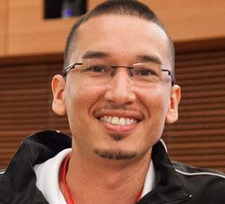
October 21, 2025 Vernon Grant, PhD Assistant Research Professor, Montana State University Topic: Assessing Sleep in Blackfeet Families Pikanii Paokaan (Blackfeet Dreams) is a 7-week sleep intervention with adult and child dyads to increase nightly sleep. During summer of 2023, we successfully recruited 30 adults and 30 children (families) to participate in the sleep intervention. In November 2023, all participants reported to the tribal council chambers of the Blackfeet Nation for pre-intervention data collection. We collected height and weight and participants completed surveys on demographic information, sleep, stress and mental health, diet, and screen time. Before each participant left they were given three books from the Blackfeet Heritage Collection. The following week, all participants completed waketime and bedtime diaries to get an indication of pre-intervention sleep patterns. The intervention included two different components. Community-identified strategies were incorporated into all aspects of the intervention that were discussed during focus groups and interviews in 2022. The first component was text messages in the morning and evening. Morning texts included Blackfoot language with a link to a YouTube page where participants could learn to properly pronounce the words. Evening texts included sleep tips and suggested readings from the Blackfeet books. The second component of the intervention was a closed Facebook page where we included clips of elders talking about traditional thoughts on sleep. We also posted Blackfoot lullabies for our participants to listen to at night. Collectively, the texts and Facebook content were meant to help families get into a bedtime routine and obtain more nightly sleep. After 7 weeks, we collected post-intervention data on all participants and also interviewed 10 participants to evaluate the intervention. The following week participants completed waketime and bedtime diaries. We found that the depression anxiety and stress scale score significantly increased sleep trouble and playing outside for more than one hour significantly decreased sleep trouble. In addition, we found that each additional child in the household decreased sleep (hours) and playing outside for more than an hour increased sleep (hours). These findings suggest that children playing outside is paramount to sleep quality and quantity and decreasing stress is vitally important for sleep quality. Missed this TFASS? Click here to watch Dr. Grant's presentation! back to top 
November 18, 2025 Stephanie Crowley, PhD Professor, Department of Psychiatry & Behavioral Science, Rush University Topic: Burning the candle at both ends: Can it impact circadian clock resetting in teens? Chronic circadian misalignment and sleep restriction are at their peak during adolescence, and are associated with excessive daytime sleepiness, learning impairment, poor academic performance, conduct problems, depressed mood, suicidal ideation, substance use, obesity, and increased risk for car accidents. This insufficient and poorly timed sleep is partly the result of enhanced evening alertness driven by changes to sleep regulation during puberty being in direct conflict with the early social clock of school schedules. The aim of this presentation is to describe new results from our ongoing studies examining the impact of evening light exposure and sleep restriction on circadian phase resetting of teens. How these data may inform the “Perfect Storm Model” of adolescent sleep behavior and why these data are particularly relevant for treating circadian-based sleep-wake phase disorders in teens will be discussed. SUPPORT: NIH/NHLBI (R01 HL112756; R01 HL105395; R01 HL146772; R01 HL151512) Missed this TFASS? Click here to watch Dr. Crowley's presentation! back to top 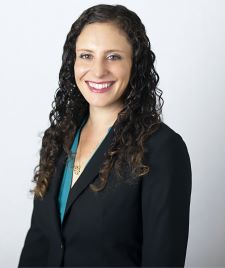
December 16, 2025 Lauren Asarnow, PhD Assistant Professor of Clinical Neurology and Pediatrics, University of Southern California School of Medicine Topic: Misalignment Between Circadian Biology and Sleep/Wake Behavior as a Mediator of Depression Improvement in Adolescents with Depression and an Evening Chronotype I'll discuss findings from a treatment trial among depressed, evening type adolescents. The study aims to test the effectiveness of a cognitive behavioral sleep intervention (Transdiagnostic Sleep and Circadian Intervention; TranS‐C) and evaluate improved alignment between circadian biology and sleep–wake behavior as a potential mechanism in the relationship between sleep and depression symptom improvement. Missed this TFASS? Click here to watch Dr. Asarnow's presentation! back to top 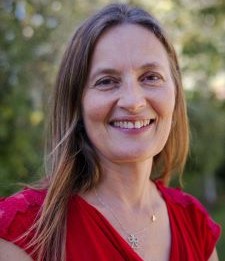
January 20, 2026 Fiona Baker, PhD Senior Program Director, Human Sleep Research Laboratory, SRI International Topic: Sleep in women: From menstrual cycles to menopause This presentation will provide an overview of issues of sleep in the context of women’s health, with a focus on menstrual cycle and menopause effects. Across the menstrual cycle, sleep architecture and thermoregulation change, with a notable increase in body temperature and blunted circadian amplitude as well as increased spindle frequency electroencephalogram activity in the post-ovulatory luteal phase relative to the follicular phase. Self-reported sleep quality does not necessarily map onto these changes, with some individuals reporting difficulty sleeping midcycle, some premenstrually, and others reporting no change. Menopause is a major life transition, and sleep can be negatively impacted by multiple factors, including vasomotor symptoms (e.g., hot flashes), changes in the hormone milieu, psychosocial factors including depression, and the rise in sleep disorders and other clinical conditions that can co-occur during this stage of life. Hot flashes are strongly linked with insomnia symptoms, with the majority of objectively measured hot flashes coincide with nighttime awakenings. There is a growing number of options for women to consider for treating menopausal sleep disturbances, including both hormonal and non-hormonal pharmacotherapies, as well as cognitive behavioral therapy for insomnia. Missed this TFASS? Click here to watch Dr. Baker's presentation! back to top 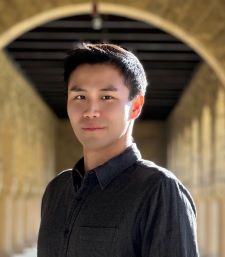
February 17, 2026 Peijun Wen, PhD Visiting Scholar, Psychiatry and Behavioral Sciences - Sleep Medicine, Stanford University Topic: Optimizing Lighting for Sleep and Athletic Performance in Pediatric Populations We are exposed to light every day, and its effects extend beyond vision to shape psychological and physiological functioning. In this talk, the presenter will share a series of studies examining how lighting influences sleep, circadian regulation, and performance-related outcomes in pediatric populations. The presentation will first illustrate how different evening indoor lighting environments affect sleep and next-morning functioning. It will then examine how daytime indoor lighting conditions affect athletic performance as well as daytime nap-related outcomes. Finally, the presenter will introduce a real-world case demonstrating how lighting interventions have been applied to support Olympic athletes, and discuss the broader implications of human-centric lighting strategies for pediatric populations and everyday living environments. back to top 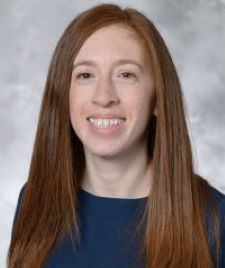
March 17, 2026 Lauren Hartstein, PhD Assistant Professor of Psychiatry, University of Arizona College of Medicine Topic: The developing circadian system: light and sleep in early childhood back to top April 21, 2026 Marie-Pierre St-Onge, PhD Professor of Nutritional Medicine, Columbia University Irving Medical Center Topic: To be announced back to top May 19, 2026 Alicia Chung, EdD, MPH Assistant Professor, Department of Population Health, NYU Langone Topic: To be announced back to top |